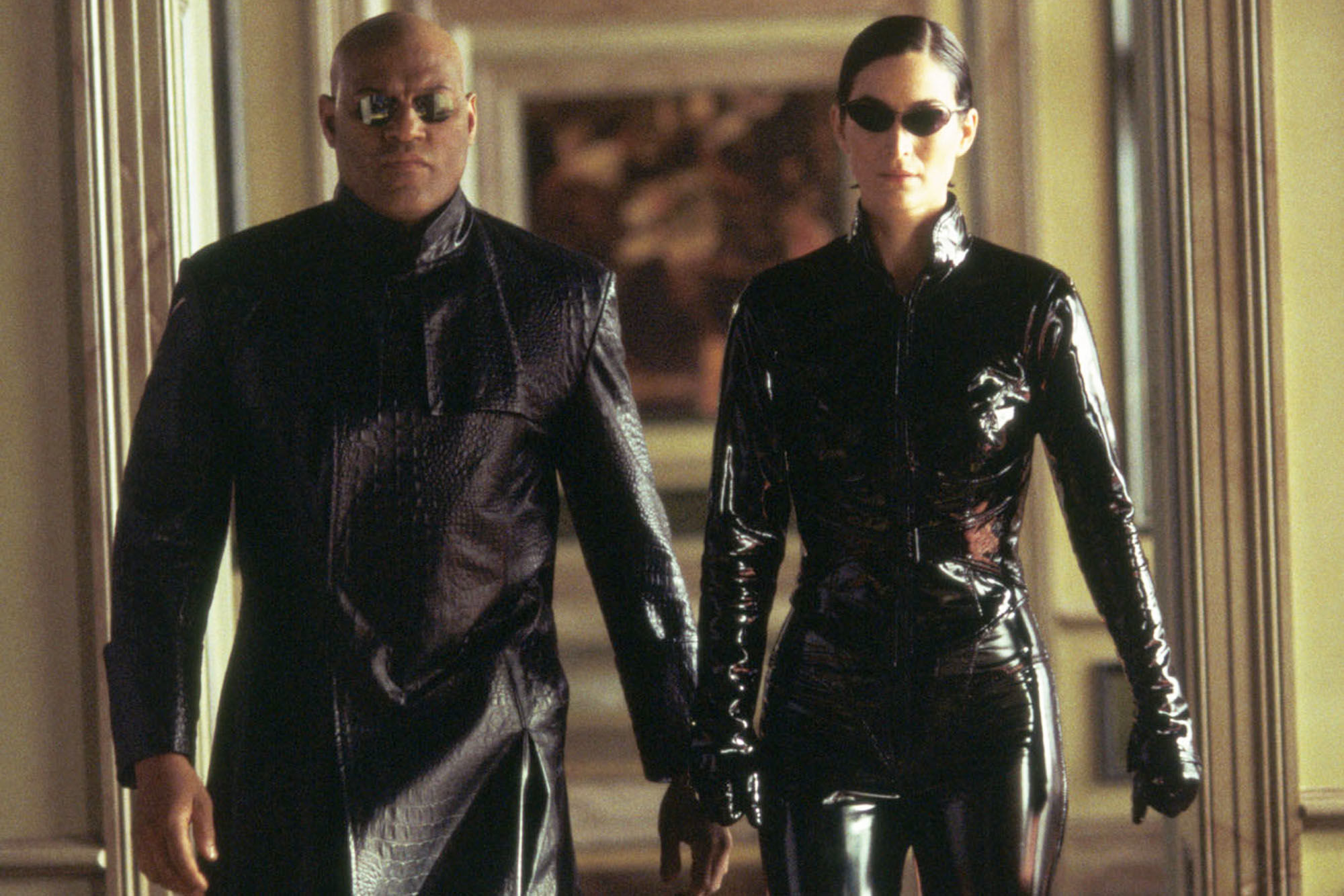Contents Overview
- Beginning: The Matrix's Cultural Influence
- The Matrix: A Defining Cultural Moment
- The Stellar Cast Behind the Matrix Phenomenon
- Keanu Reeves: Transforming into Neo
- Carrie-Anne Moss: Trinity, the Embodiment of Strength
- Laurence Fishburne: Morpheus, the Guiding Philosopher
- The Wachowskis: Visionaries of the Matrix Universe
- The Matrix's Enduring Legacy in Popular Culture
- The Matrix: Shaping Technology and Philosophy
- The Future of the Matrix Franchise
- Final Thoughts
Beginning: The Matrix's Cultural Influence
The Matrix is more than a cinematic masterpiece—it's a cultural phenomenon that has redefined the boundaries of science fiction. Released in 1999, this groundbreaking film directed by Lana and Lilly Wachowski introduced audiences to a dystopian reality where truth is an illusion, and humanity's survival hinges on the actions of a chosen few. Combining revolutionary visual effects, a thought-provoking storyline, and unforgettable characters, The Matrix quickly became a global sensation. Its exploration of profound themes such as reality, identity, and freedom resonated deeply with viewers, solidifying its status as one of the most influential films of all time.
The Matrix was not just a visual extravaganza; it was a profound philosophical journey. It invited viewers to question their understanding of the world and delve into the limitless potential of the human spirit. The iconic performances of Keanu Reeves, Carrie-Anne Moss, and Laurence Fishburne breathed life into complex characters, creating a legacy that continues to inspire new generations. The visionary storytelling of the Wachowskis elevated The Matrix from a mere action film to an enduring masterpiece that transcends time.
Even decades after its release, The Matrix remains a cornerstone of popular culture. Its influence is evident in countless films, TV shows, and even technological advancements. This article explores the lasting impact of The Matrix, delving into its iconic cast, its cultural significance, and its timeless legacy. By the end of this piece, readers will understand why The Matrix is more than just a movie—it's a cultural revolution that continues to shape our world.
Read also:Exploring The Life And Career Of Michael Kosta
The Matrix: A Defining Cultural Moment
When The Matrix premiered in 1999, it was a revelation that captivated audiences worldwide. The film's seamless blend of high-octane action, philosophical depth, and cutting-edge special effects set it apart from anything that had come before. The groundbreaking "bullet time" technique, which allowed for slow-motion sequences with a rotating camera, revolutionized the way action scenes were filmed. This innovation became a hallmark of The Matrix's visual style, leaving an indelible mark on the film industry.
However, The Matrix's appeal went far beyond its technical achievements. Its narrative struck a chord with audiences, exploring themes of reality versus illusion, freedom versus control, and individuality versus conformity. In an era of rapid technological advancement, the film tapped into growing anxieties about the digital age and the potential loss of human agency in a machine-dominated world. Drawing inspiration from philosophical works like Plato's Allegory of the Cave and Jean Baudrillard's "Simulacra and Simulation," The Matrix added layers of depth that invited viewers to reflect critically on their lives and the world around them.
The cultural impact of The Matrix extended far beyond the screen. Its iconic imagery, including Neo's iconic black trench coat, Trinity's sleek leather outfit, and the red pill/blue pill metaphor, became deeply ingrained in popular culture. The film's influence can be seen in everything from fashion trends to video games to philosophical debates. It inspired a wave of science fiction films that sought to replicate its success, though few could match its originality and depth. The Matrix's ability to blend entertainment with intellectual stimulation ensured its place as a cultural touchstone that continues to resonate today.
The Stellar Cast Behind the Matrix Phenomenon
The success of The Matrix owes much to its visionary direction and groundbreaking effects, but the film's iconic status is also rooted in its exceptional cast. Each member of this ensemble brought their unique talents and charisma to the table, creating characters that have become timeless symbols of strength, wisdom, and resilience. Below is a summary of the key cast members and their contributions:
| Name | Role | Notable Contributions |
|---|---|---|
| Keanu Reeves | Neo | Portrayed the reluctant hero with vulnerability and determination, bringing depth to the role of "The One." |
| Carrie-Anne Moss | Trinity | Defined strength and loyalty as Neo's ally and love interest, challenging traditional gender roles. |
| Laurence Fishburne | Morpheus | Delivered philosophical depth as the mentor who guides Neo, with commanding presence and eloquent delivery. |
| Hugo Weaving | Agent Smith | Portrayed the menacing antagonist with chilling precision, making Agent Smith one of cinema's most memorable villains. |
| Joe Pantoliano | Cypher | Added complexity as the traitor within the resistance, exploring themes of betrayal and moral ambiguity. |
Together, these actors formed a cast that was as diverse as it was talented. Their performances elevated the film's narrative, transforming The Matrix from a mere visual spectacle into an emotionally engaging experience. Each character played a pivotal role in the story, contributing to the film's exploration of themes such as identity, freedom, and sacrifice.
Keanu Reeves: Transforming into Neo
Keanu Reeves' portrayal of Neo, the reluctant hero destined to save humanity, stands as one of the most defining performances of his career. Before The Matrix, Reeves was already a well-established actor, having starred in films like Bill & Ted's Excellent Adventure and Speed. However, it was his transformation into Neo that cemented his status as a cultural icon. Reeves brought a quiet intensity to the role, capturing both the vulnerability and determination of a man discovering his true potential.
Read also:Exploring Hdhub4u A Comprehensive Guide To Hindi Movie Downloads
Reeves' Journey to Becoming Neo
Reeves underwent rigorous training to prepare for the physically demanding role of Neo. He trained extensively in martial arts, wirework, and firearms, ensuring that his fight scenes were as authentic as possible. His dedication to the role was evident in every frame, as he seamlessly transitioned between action-packed sequences and emotionally charged moments. Reeves' ability to convey Neo's internal struggle—balancing his doubts with his growing sense of purpose—made the character both relatable and inspiring.
Off-screen, Reeves' humility and kindness have endeared him to fans worldwide. His down-to-earth personality and genuine passion for his craft have made him a beloved figure in Hollywood. Reeves' portrayal of Neo not only defined his career but also left an indelible mark on the world of cinema, ensuring his legacy as one of the greatest actors of his generation.
Carrie-Anne Moss: Trinity, the Embodiment of Strength
Carrie-Anne Moss' portrayal of Trinity is a masterclass in strength and vulnerability. As Neo's ally and love interest, Trinity is a character who defies traditional gender roles. She is fiercely independent, highly skilled, and unwaveringly loyal to the cause. Moss brought a quiet intensity to the role, capturing Trinity's determination and emotional depth, making her a standout figure in the world of action cinema.
Breaking Stereotypes with Trinity
Trinity's character challenged the stereotypes often associated with female roles in action films. She was not merely a sidekick but a fully realized character with her own agency and motivations. Moss' performance highlighted Trinity's leadership qualities and her ability to hold her own in a male-dominated world. Her chemistry with Keanu Reeves added another layer of depth to the film, making their relationship one of the most memorable aspects of The Matrix.
Off-screen, Moss has spoken about the impact Trinity had on her career and the broader representation of women in Hollywood. Her portrayal of Trinity inspired a generation of women to embrace their strength and individuality, making her a role model both on and off the screen. Moss' contribution to The Matrix's legacy extends beyond her performance, as she continues to advocate for greater diversity and representation in the entertainment industry.
Laurence Fishburne: Morpheus, the Guiding Philosopher
Laurence Fishburne's portrayal of Morpheus is one of the most iconic mentor roles in cinematic history. As the leader of the resistance and Neo's guide, Morpheus embodies wisdom, patience, and unwavering belief in the cause. Fishburne's commanding presence and eloquent delivery brought gravitas to the role, making Morpheus a character who resonates with audiences on a philosophical level.
The Philosophy of Morpheus
Morpheus serves as the philosophical anchor of The Matrix, delivering some of the film's most memorable lines. His speech about the red pill and blue pill has become a cultural metaphor for choice and self-awareness. Fishburne's ability to convey complex ideas with clarity and conviction added depth to the film's narrative, making Morpheus a character who transcends the boundaries of genre. His performance elevated the film's philosophical themes, inviting viewers to reflect on the nature of reality and the choices that shape their lives.
Off-screen, Fishburne's contributions to the arts extend beyond his acting career. His work as a director, producer, and advocate for diversity in Hollywood has made him a respected figure in the industry. His portrayal of Morpheus remains a testament to his talent and enduring legacy, ensuring his place as one of cinema's greatest performers.
The Wachowskis: Visionaries of the Matrix Universe
The Matrix would not exist without the creative genius of Lana and Lilly Wachowski. As the film's directors and writers, they crafted a narrative that was as intellectually stimulating as it was visually stunning. Their vision for The Matrix was rooted in a deep understanding of philosophy, technology, and human nature, creating a world that felt both familiar and otherworldly.
The Wachowskis' Influence on Cinema
The Wachowskis' innovative storytelling and technical prowess set a new standard for science fiction films. They pushed the boundaries of what was possible in cinema, using groundbreaking visual effects and narrative techniques to create a world that captivated audiences. Their ability to blend action, philosophy, and social commentary made The Matrix a film that transcended its genre, appealing to a wide range of viewers. Beyond their work on The Matrix, the Wachowskis have continued to push the envelope in Hollywood, advocating for greater diversity and representation in the entertainment industry. Their legacy as the creators of The Matrix ensures their place in cinematic history as trailblazers who redefined the possibilities of storytelling.
The Matrix's Enduring Legacy in Popular Culture
The Matrix's impact on popular culture is undeniable. Its influence can be seen in everything from fashion trends to video games to philosophical discussions. The film's iconic imagery and themes have become a part of the cultural lexicon, inspiring countless works of art and media. Its ability to resonate across generations ensures its relevance in today's world.
The Red Pill/Blue Pill Metaphor
One of the most enduring legacies of The Matrix is the red pill/blue pill metaphor. This simple yet powerful

